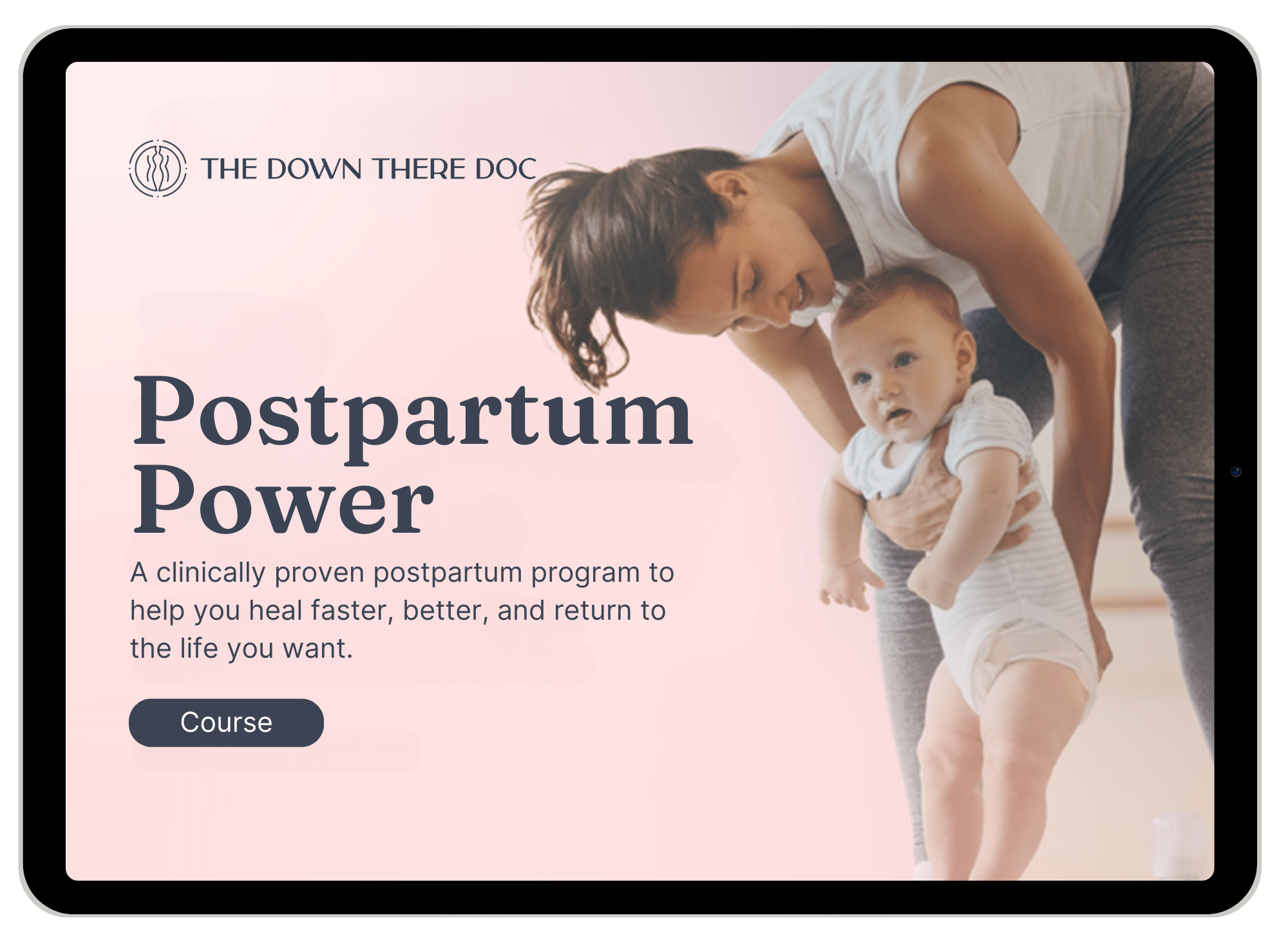Spoiler alert: It’s not 6 weeks.
But if it’s not 6 weeks, then why is it normal for the postpartum appointment to be at 6 weeks? And why are you given only one follow-up? Let’s discuss it.
The 6-week timeline is appropriate for one thing, and one thing only: “tissue healing.” In normal physiology, it takes 6-8 weeks for tissue itself, to heal. I am referring to the timeline of healing wounds, stitches being dissolved, bleeding stops, scars being stable and closed, etc.
See Also

Postpartum Power
Postpartum recovery is like baseball…Kind of
This timeline can be, and usually is, very different from the 6 weeks normally expected. In fact, most women/birthing persons report having many of the same postpartum issues well into their later years, and these all stemmed from when they gave birth.
No other patient would be considered “recovered” if this was the case in any other medical setting. Picture it this way:
A baseball pitcher is still experiencing a limited range of motion on a shoulder from an old injury, to the point where he has to change his sport, modify everyday activities, and maybe even wear a garment or sling to correct and subdue the pain. Would you say that he is “recovered?” I don’t think so.
Let’s break down what a postpartum recovery timeline actually looks like
Many mothers/birthing persons don’t feel like themselves at all when they reach the 6-week mark. Yet, they are told that they should feel “normal” and able to do everything that they did prior to the pregnancy. Many are still bleeding, still healing, still processing the birth. Many are exhausted and still figuring out how to eat, sleep, shower, and feed a baby all in one day. It can feel impossible, especially only 6-weeks in.
In my opinion, as a leading women’s health expert and pelvic floor physical therapist, when it comes to recovery, the 6-week mark should be a starting point, not an ending point. While your body’s tissues may have healed from birth, you as a whole may not feel or be fully recovered.
You should be treating yourself very gently during those first 6 weeks, but if you would like to jumpstart your recovery, here are 3 tips:
1. Practice reconnecting mind-body pathways
Specifically when it comes to the connection from your brain to your pelvic floor. The more consistent you are with your pelvic floor exercises, the stronger you will become in recovery.
2. Incorporate foundational functionality
Once you’ve become a pelvic floor pro, you’re ready for the big leagues. It’s time to apply use of your pelvic floor in everyday situations and exercises. You can read all about how to build your foundation here.
3. Remember the 2 F’s
Fluid and fiber. While breastfeeding, it’s normal to become very dehydrated to it’s extremely important that you stay on top of drinking fluids. Keep a nice big water bottle near you at all times. I also recommend working a TON of fiber into your diet to help with calorie depletion as well as keeping those first postpartum poops smooth.
For a more in-depth explanation and education on these tips, check out my free training, 3 Postpartum Tips for Your First 6 Weeks.
A realistic postpartum timeline can range anywhere from 6 weeks to 6 years—it varies for almost everyone and almost every birth. Your first birth might have been a doozy, and the second one much easier. Or vice versa. Your third birth may have been traumatic, but the first 2 were super easy and recovery was a breeze. No two births are the same and neither is the recovery.
No matter your story…
You’re most likely planning your births fairly close together. There is an exception to everything, of course, but generally speaking, most families have kids no more than a few years apart. What this means is that, oftentimes, pregnancies and deliveries are piled atop one another over just a few years when we are still not totally “recovered” from the previous trauma of carrying and delivery. And this can make recovery very long and difficult.
I tell my clients and my patients this: Everyone is different, and there is no standard or rulebook for you to follow at any particular time after having a baby. Medical professionals follow rehabilitation principles and tissue healing physiology when we are looking at scars and wounds, but there is no chapter in a manual for where you are or “should be” at a particular time.
Your time is yours
The minimum amount of time for recovery is 6 weeks but only because it takes that long to stop bleeding (sometimes longer!). However, most women and mothers don’t feel recovered or like themselves much further into the future of their post-birth timeline.
For me, it was 12 months with my first and 9 months with my second. And I would argue I still have some work to do in terms of my pelvic floor. I had big babies with long pushing phases. My cystocele isn’t “recovered”, but it’s certainly better and functional—my kids are now 5 and 7.
This is not the case for everyone. Whether it’s 6 weeks, 6 months, or 6 years postpartum, it’s okay to still be struggling. The most important thing is that you have help, you have a plan, and you have a roadmap to help get you there. Postpartum is here for the long haul and so is The DownThere Doc.
For more help on your postpartum recovery, check out my online program Down There Done Right. It’s got everything you need to recover safely and effectively, with the direct guidance of a practicing Pelvic Floor PT (That’s me :). Plus it’s affordable and completely online so you can do it anywhere, anytime.









